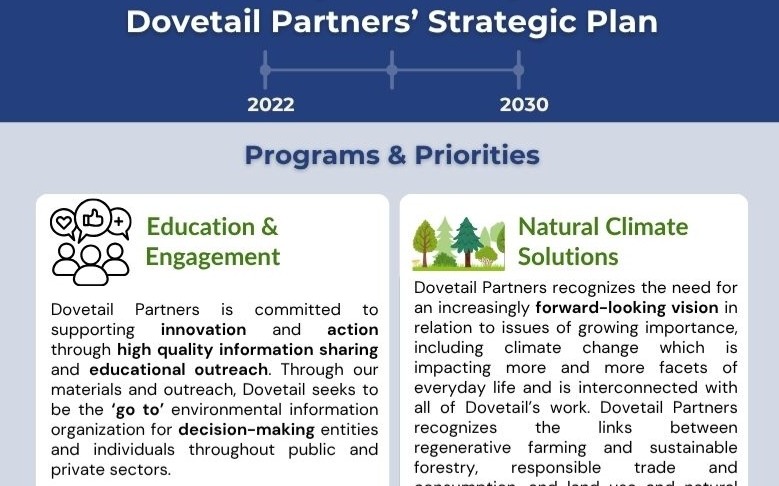The goal of the Minnesota North Woods Carbon Credit Partnership is to develop a carbon credit accounting system that works for Minnesota’s North Woods, including considerations for carbon storage associated with active forest management, long-lived wood products, and peatland restoration and management. The project was developed to meet the requirements of the Chicago Climate Exchange (CCX) and the Voluntary Carbon Standard (VCS). The project utilized existing forest inventory and growth and yield data for the region, including information collected by the Forest Inventory and Analysis (FIA) Program of the U.S. Forest Service and data from the Aitkin and Cass County Land Departments.
The Minnesota North Woods Carbon Credit Partnership was developed with the participation of Aitkin County Land Department, Cass County Land Department, Dovetail Partners, Manomet Center for Conservation Sciences, and the USDA Forest Service. The county land departments and the USDA Forest Service had primary responsibilities for providing data as necessary to support growth models and carbon credit accounting systems. The Manomet Center for Conservation Sciences had lead responsibilities for crafting a carbon credit framework that fits the requirements of the marketplace while meeting the goals of the land managers of Minnesota’s North Woods.
The approach outlined by the project can be used to develop estimates of carbon storage potentials. With this information land managers can then complete a third-party audit to confirm the carbon credits and allow them to be marketed. Many of the large land mangers in Minnesota are already participating in third-party forest certification and many of the same auditors can provide carbon credit auditing services. The project has been piloted with the Aitkin and Cass County Land Departments and the approach taken by these counties is being made available for use by other public and private land managers.
The overall goal of the project has been to establish a system that will result in carbon credits being sold from Minnesota’s Northwoods. The mid-term strategy is to promote the system and demonstrate its utility so that further adoption occurs and carbon markets in Minnesota can be expanded. Over the long-term, additional ecosystem service markets will be pursued that can be easily “layered” on top of the carbon credit framework and expand the economic and environmental benefits to the region.
- Lead AuthorFernholz
- ClientAitkin County Land Department, Cass County Land Department, Manomet Center for Conservation Sciences, with funding from Blandin Foundation
- DateFebruary 2009
- CategoryCarbon, Certification, Environmental, Forest products, Forestry, Forests, Management, Wood
- Project FileDownload

.png)
.png)
.png)

.png)
.png)